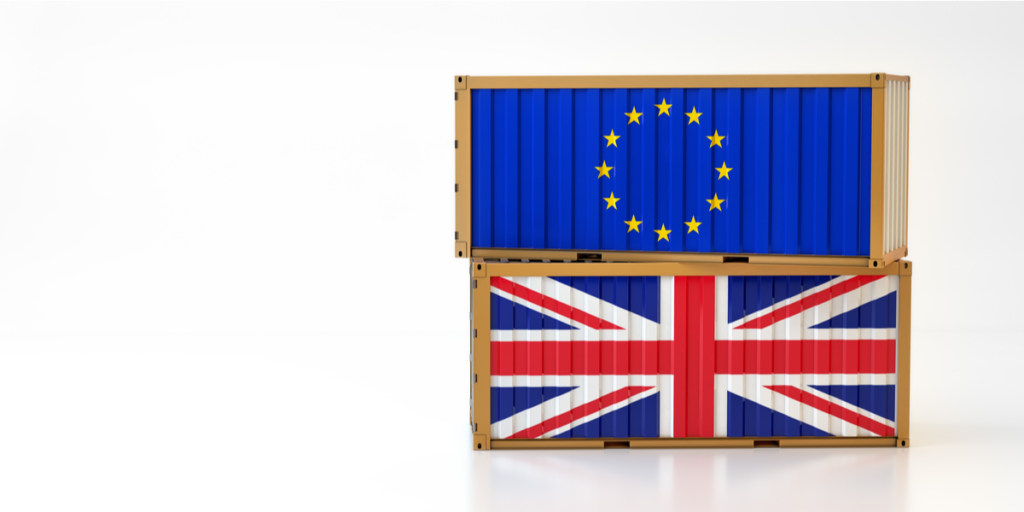It’s no surprise that Brexit has had a profound impact on the delivery space. Over the past few months, we at Scurri have implemented hundreds of Brexit related changes to our system to best support our retailer customers at this tricky time.
Meanwhile, we’ve been receiving a lot of questions from merchants (who aren’t using Scurri) seeking advice on shipping with Brexit. Over the coming weeks, we’re going to share practical information here on the Scurri blog, to help simplify matters for eCommerce sellers.

“We’ve had a huge amount of inquiries from merchants who just aren’t familiar with the particular new system, and they are just scratching their heads wondering what do they have to do. They are not aware of the requirements, and in a lot of cases, had no idea this was coming at this level or just ignored it.”
The Northern Ireland anomaly
While Britain left the EU’s single market and customs union on December 31 2020, as the agreement drew to a close, there was still some confusion surrounding Northern Ireland.
Northern Ireland was left with a dual status in UK customs territory and the EU’s single market for goods. It was announced that customs declarations would not be required for most parcels received by Northern Ireland during a 3 month grace period (until 1st April 2021).
Instead of erecting new infrastructure along the jurisdictional border on the island of Ireland, new Brexit-related checks have been established at ports in Great Britain and Northern Ireland.
Goods shipping from NI to the UK are largely unaffected. However, despite the grace period, goods delivery from the UK to NI is experiencing some disruption.
What are the checks that are required at customs?
Checks include animal and plant safety checks (called SPS or sanitary and phytosanitary checks), customs declarations for commercial goods, and physical inspections for some freight deliveries.
There are also checks as some goods are banned. It is always best to check with the carrier for their guidance as prohibited items can vary between carriers.
Although it is not yet known if an extension on the 3 months will be granted or not, customs checks for Northern Ireland will likely become more commonplace.

EORI numbers for Northern Ireland
The EORI (Economic Operator Registration and Identification) is a number assigned to importers and exporters that is used in the process of customs entry. From a customs point of view, the EORI number can be quite important.
When trading between Northern Ireland and a Non-EU country (such as GB), it is now important to get a special ‘XI’ EORI number to use.
In Scurri, we offer our customers the ability to manage their own EORI numbers and inputs. This self serve means our customers are always in control.
When shipping on behalf of others, a company may need to ensure that those company details are updated on the commercial invoice documentation. This is to help ensure that the exporter’s details are correct on the customs documentation.
With Scurri, it is possible to still ship on behalf of other companies and still ensure that their details are provided on the documentation by overriding the EORI number to match that of the company in question.
Best practices checklist for shipping to Northern Ireland
1. Banned Items List
Check with your express carrier or the Royal Mail Group prior to exporting an order to ensure your goods do not belong on the banned item list. For example, DPD has a list of UK Export Prohibited List by Country – including those banned in Northern Ireland.
2. Register for the Trader Support Service
The UK government has launched the free-to-use Trader Support Service, which will help businesses and traders manage the changes that will affect your business if you move goods into and out of Northern Ireland. Register for the Trader Support Service.
3. Register for an XI EORI
You will need to have your GB EORI number already in order to apply for an XI EORI number in order to quote this EORI number when shipping with Northern Ireland.
4. Send Customs Data
Sending over customs data when shipping from GB to NI will become mandatory as of 1st April, so it is good practice to start sending this data over now.
When shipping B2B and for Northern Ireland businesses receiving goods with a value of £135 or more through an express carrier or the Royal Mail Group, a declaration must be made within 3 months of receiving the goods. This can be done through the TSS link above.
While many retailers remain uncertain around Brexit procedures, more and more clarity is emerging from carriers and governments on the way forward. Businesses and customers are increasingly educating themselves and gradually adapting to this new world.
Download the checklist
Download our checklist for Post-Brexit Shipping between UK & Northern Ireland.

